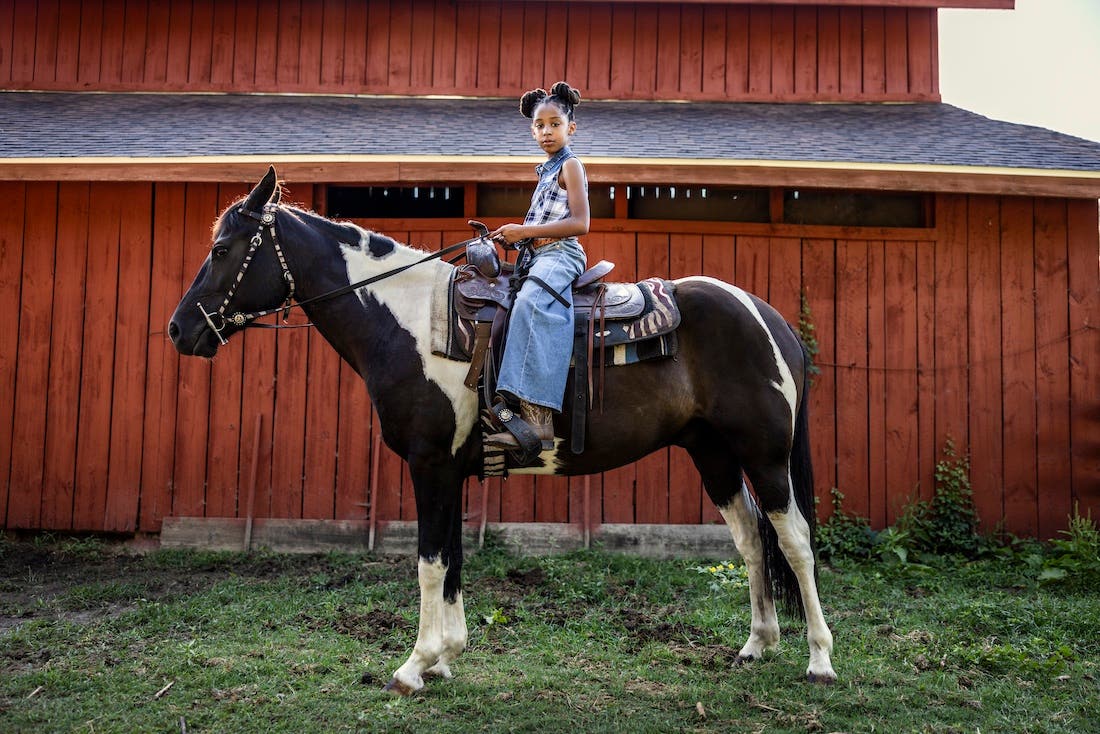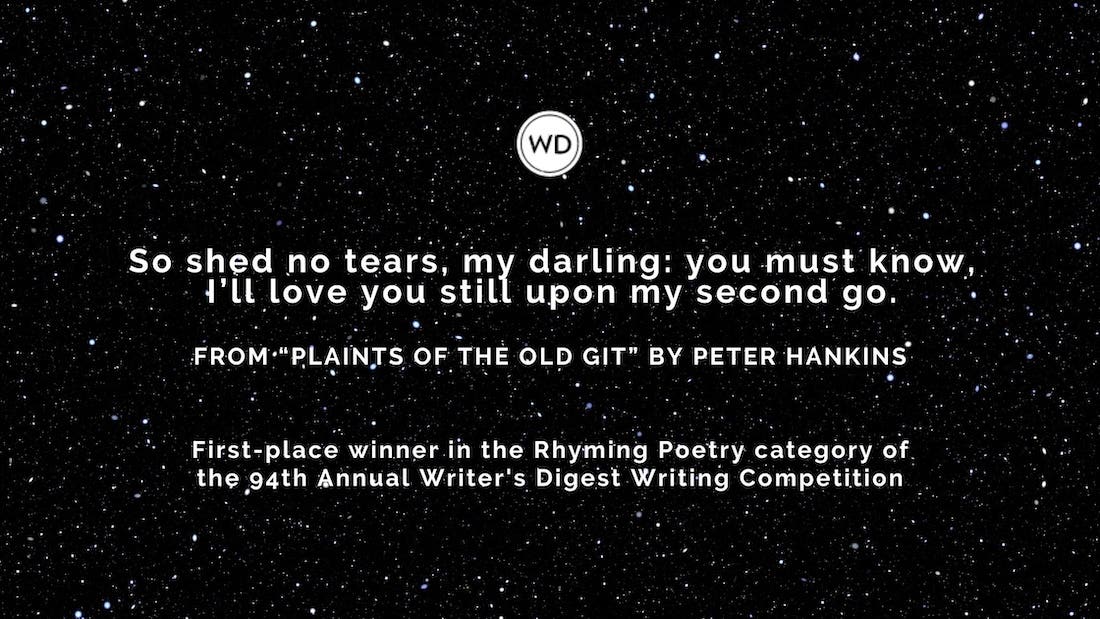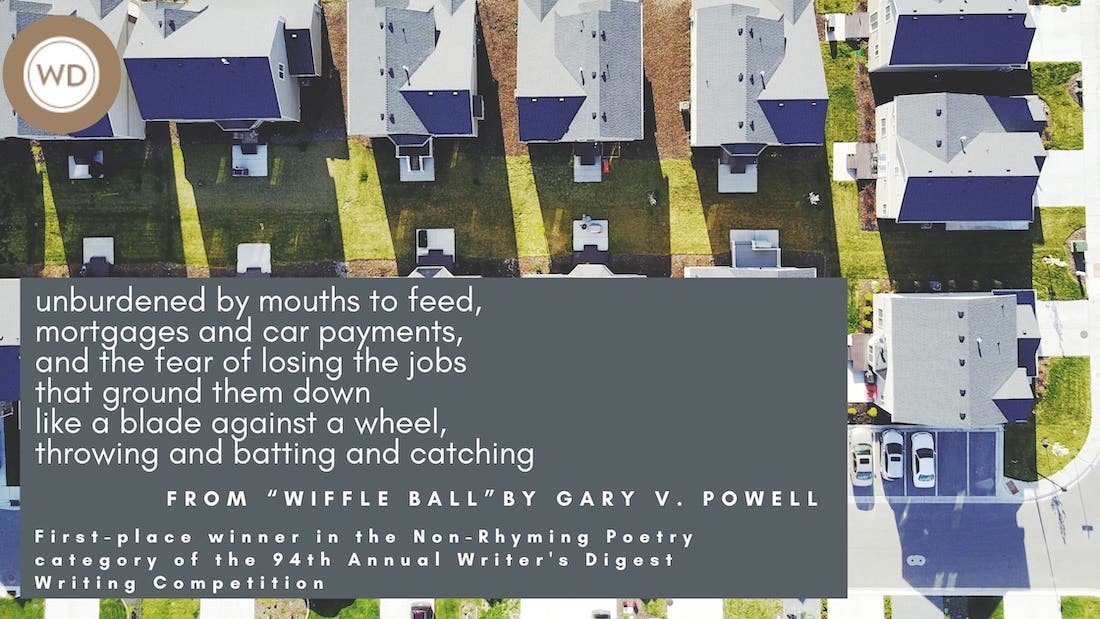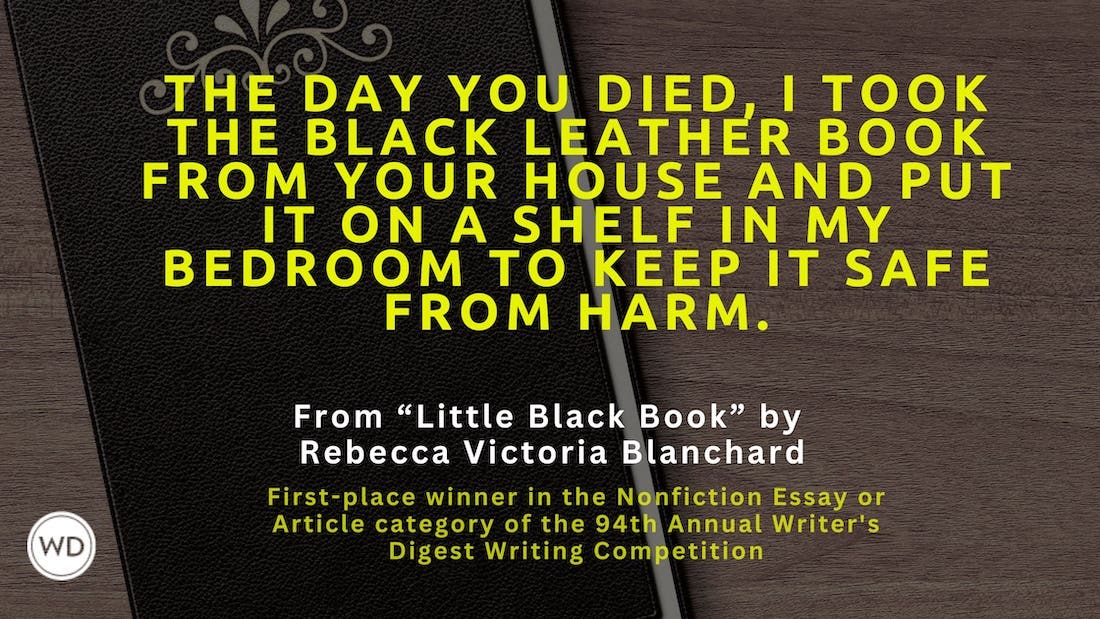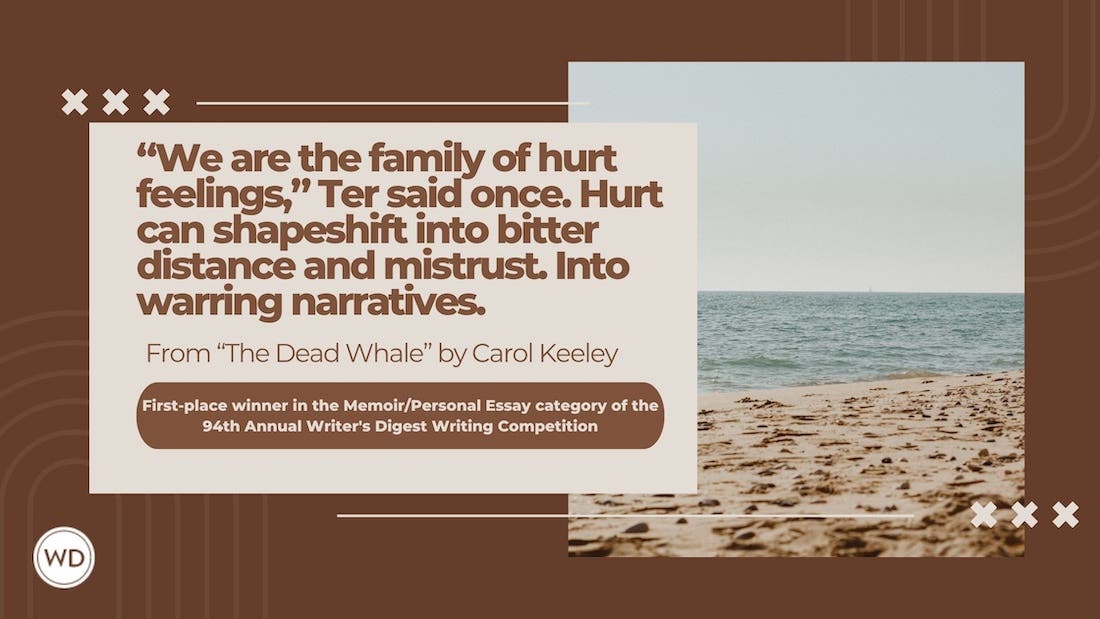Writer’s Digest 90th Annual Competition Mainstream/Literary Short Story First Place Winner: “Tracks”
Congratulations to Elizabeth Rosen, first place winner in the Mainstream/Literary Short Story category of the 90th Annual Writer’s Digest Writing Competition. Here’s her winning story, “Tracks.”
Congratulations to Elizabeth Rosen, first place winner in the Mainstream/Literary Short Story category of the 90th Annual Writer's Digest Writing Competition. Here's her winning story, "Tracks."
Tracks
She said she wanted to go where she could hear the train. I knew what she meant: something from her childhood in the South when she’d been carefully attended to. Some mournful nighttime whistle steeped in a brew of loneliness of the kind she’d felt as she lay in her dark bedroom, her chintzy daisy-covered bed sheet pulled up to her chin, the train a soundtrack to her dreams of being anywhere but where she was, that suffocating house with its strangling heat and arguments.
So I found a place. A little “shack on the track,” the description on Airbnb read. None of the feedback even mentioned the train, so I figured it couldn’t be too noisy. Not like those movies where the El passes two feet away from the apartment window, rattling the glass in the window frame and bouncing the dingy bed around an arms-length away from the clatter of cars passing by. Not like that.
I knew what she meant when she asked because I’d been there, too. We had escaped together.
****
In the daytime, we walked. Mostly around the neighborhood with its single-story houses and waist-high chain link fences portioning off scrappy yards. She tired easily, so I tried to map our walks in advance so that we happened to pass shady places to sit. I didn’t tell her, but she probably knew. There were times I had to hold her by the elbow, but she never let me put my arm around her waist. She said the time for that had passed. As if.
****
Everything was stripped to its simplest form. Meals were reduced to Frosted Flakes in the morning, an avocado or piece of fruit for lunch, and a box of Stovetop Stuffing for dinner. She’d always loved Stovetop stuffing. She’d lived on it as a poor college student, and said it was the happiest time of her life. I ate it with her. I knew I wouldn’t have to eat it for very long, and the rich, savory taste filled the space inside me that was in the process of emptying as she went.
We wore the same clothes for days, her in denim shorts and a Beavis and Butthead shirt, me in black jeans and a company t-shirt. We had a few pairs of underwear each, and we washed these out at night – or I did if she was too tired to do it.
When it couldn’t be ignored any more, she stripped down and handed me the bundle of clothes to take to a Laundromat a few blocks away. I’d take a towel from the bathroom and strip off my dirty clothes in front of the washing machine to add to hers. I’d stand over the humming machine, the towel wrapped around my waist, waiting for the cycle to finish. When I came back, the clothes still warm in my arms, I’d find her dozing on the couch, naked except for her underwear and cowboy boots, curled into a fetal position as if she were trying to make herself small so the pain wouldn’t find her. Her thin body reminded me of skeletal embryonic chicks that you sometimes see when an egg cracks too early, her pale hair like the wet wisps of feathers on the chick’s head. I tried not to wake her. I held my breath until I felt dizzy just so she could wake up and ask, for a change, whether I felt alright.
We spoke only when there was something important to say. We sat out on the concrete slab that doubled for a porch and watched the comings and goings of the neighborhood after work. When she saw a yappy Dachshund leading its owner on a walk and said, “Dogs spend their whole lives forgiving us,” it had the weight of a worldview. Sometimes the quiet of the night was broken when she talked in her sleep, and everything that came from her mouth during these times had the weight of a philosophical declaration. Or prophesy.
****
There was a carry-on black bag that she brought with her when we left. It was the only thing she took except for her backpack. She never opened the carry-on, but she never left it in the car, either. I didn’t ask her what was in it. Some unfinished business.
****
There was a train, but it wasn’t what we’d been hoping for. Instead of a whistle in the night, there were periodic metal clangs when the trains changed rails and dropped onto their new tracks. We slept through it the first night in the house, not even knowing that was what we were hearing in our dreams. We only figured it out the second night when I heard the clang echo.
“What is that?” I said.
We were sitting on the couch with some Will and Grace re-run on the television, and she was leaning against me, her eyes dull with foreign thoughts. “That’s the train,” she said in a faraway voice. She fell into a troubled sleep not long after, twitching away from the pain.
I rested my head against the back of the couch and closed my eyes, letting the memories drift past the inside of my eyelids without stopping. Probably just as well, I thought. Nothing good could come of revisiting that time.
****
Her mother was a cruel drunk, her father an angry one. When he began to raise his fist to her, she decided that she might not last the two years she had until graduating high school.
I had an uncle in Rapid City, and a houseful of brothers and sisters who were draining the life from my mother. When I told her that I was moving out, she nodded absently, preoccupied by the little ones squabbling over a fruit roll-up. I left her a note with a telephone number that she never used.
On a morning that we were supposed to be getting on a school bus, we got on a Greyhound bus instead and left that place, Hannah with the cash she’d stolen from her parents’ dresser, me with the money I’d saved from working at Taco John’s.
My uncle helped enroll us in the high school so we could finish. We lived with him until we graduated and then he said he’d done right by us and we needed to move on. Hannah enrolled in the state college. I moved with her, but I had no taste for college life. I took a job with a landscaper, and by the time she was graduating, I had my own truck with a mower and snow-blower in it, and an L.L.C. behind my name instead of a B.A.
When she found out how sick she was, she told only me. We’d been best friends since seventh grade, and shared common memories of a life we’d escaped and a life we’d forged together. When she told me it was time to go, I let my customers know I would be gone for a little while, and looked for a place in Sioux Falls for us. There was no one else to inform.
****
When the walking was at an end, I sat with her instead and we waited. I propped myself against the backboard, reading to her from a book in my hand. She huddled against me like she couldn’t get warm. We left the TV on in the other room, and periodically the sound of audiences applauding drifted to us. There were times when the applause came after she’d been convulsed against me with some bolt of pain. It made it seem as if the universe was congratulating her for how she was weathering it.
“I thought I’d be ready by now,” she said dully, after one of those intersections. I didn’t know what to say. We’d fought so hard to get some kind of life for ourselves. It seemed naïve to think that either one of us would be willing to let go of it easily.
Her skin had started to turn sallow. I looked at our wrists next to each other. Hers was chicken-bone thin next to mine. I thought I could see her heartbeat ticking under the onion paper that covered her meager flesh. I pushed my nose against her sweaty scalp to keep myself from counting beats.
“You made things okay,” I said. “I wanted to tell you.”
Her fingers tightened on my forearm in silent agreement. I felt her gathering oxygen to say something and waited, but her inhalation seemed to catch hard on something, and the coughing took over. Her grip on my forearms tightened, as if she was looking for a way to haul herself out of it. I heard the words “my family,” but the rest was lost inside the hacking. I thought she was trying to tell me something about her family in Alabama, but when I looked into her eyes - deep pools of pleading sunk into a frame that stuttered and contorted around them with the spasms - I saw that she meant me.
After the coughing fit passed, she fell into an exhausted stupor. I didn’t think I could control my expression, so I pressed my face hard against her hair again and listened to her inhalations rattling and banging against the air like that El train from my nightmares.
****
We took the school bus from the same corner. One day, in seventh grade, some older girls had pushed her as we walked from the bus stop to our houses. She’d gone down hard onto her hands and knees, her textbooks and notebooks spilling forward like a fan of tea on the sidewalk. I stopped to help her up, and glared hard at the other girls.
“Quit it,” I told them. They were older, but I was taller. They blew kisses at me, and walked away laughing.
I gathered the books while she stood and examined the scrapes on her knees. From one of the folders, an X-Men comic had slid loose and was poking out. Recognizing the cover from my own house, I pulled it free. She stopped brushing herself off and waited expectantly.
“Jean Grey or Storm?” I asked.
She dismissed the suggestion with a click of her tongue. “Rogue. You?”
“Banshee,” I said to test her.
She wrinkled her brow. “Who?”
The next morning, we sat together on the curb waiting for the bus and I showed her my cherished original in which Banshee appeared. Only later, when I was sure of her, did I tell her my real favorite was Changeling.
****
No one tells you how boring it is to watch someone die, how the expectation of agony numbs your language and mutes your ability to think. Time becomes a flat white space of waiting interrupted by terrified gasps. I had worried that I would be overwhelmed by memories as I sat with her. Instead, the waiting calcified my thoughts. My own blinking surprised me. No one tells you that you are capable of watching that hard. I kept my hand on her thin upper arm, hoping it would jumpstart my mind.
I wanted her going to be profound. I took in the tiny details of the room, of the day, the little blond hairs on her ear lobe, the frayed edge of the bed sheet that had come loose from the bottom of the mattress, the metal screech of the neighbor’s mailbox being opened and the clang of the top being dropped back into place. I had anticipated that these details would loom large and stay with me forever, markers of a moment that would change me, but sitting there with my head lowered, I realized that this wasn’t so, that these tiny things would disappear with her. They were place-fillers, something to do to pass the time. Nothing means anything unless you assign it to pattern, I thought idly as I stared out the window. On the bed, her mouth formed the pulsing O of a gaping fish’s. I watched and watched.
Death was a coroner’s white sheet flicked open and floating in the air above our heads, waiting to settle.
****
I drove through the night, jittery with caffeine. About seventeen hours in, I pulled over to the side of the highway to sleep, but lying there in my lowered seat, all the thoughts that hadn’t come while I was with her now wouldn’t stop. They pinged in my head like the icy rain on the roof of my truck. I decided I might as well drive.
It was late morning when I pulled into our old neighborhood. I let my eye wander over the splintered paint and pulled-away soffit, the wasp nests tucked behind dented downspouts, the ratty azaleas with their stamen drooping like sick drug addicts. Parked in front of my old house, I thought about ringing the bell to see if my mother was around, but didn’t know what there was to say. I set an alarm on my phone and let myself drift into sleep.
A few hours later, I watched kids getting off the school bus in my rearview mirror. I wasn’t sure that I would recognize her sister. She came up the street with two other kids who veered off and climbed the porch of my mother’s house. I realized that the last time I’d seen them they’d been squabbling over who was going to ride the Big Wheel first. I watched the other girl draw near on the sidewalk. I knew her now. Opening the car door, I stepped out to meet her. She stopped where she was, shifting the backpack on her shoulder as she looked me over.
She had a sloppy blue ombre that was fading to the green of sea glass. There were gauges in her ears and her eyes were rimmed in thick black lines with a cat’s tail curving out from the corners. The shoulder strap of her knapsack pulled her floppy white shirt away from the black tank she wore under it, and her short, striped skirt sat crooked against her black tights.
We stood there a minute considering one another.
“You remember me?” I asked finally.
“I remember you,” she said, her head tilting slightly.
Up on the porch of my mother’s house, my siblings had turned to watch the stranger who was talking to their neighbor. I saw some intelligence cross the face of one of them, and he stepped closer to the edge of the porch to get a better look.
“Where’s Hannah?” her sister asked. I return my gaze to her. As though my looking away had released him from some enchantment, I heard my brother call into the house, “Mom? I think Josh is here.”
I reached in through the open window of my truck and pulled out the carry-on bag. Tucking it under my arm, I said, “She’s gone.” The cramp in my gut when I told her made me realize that nothing I ever said would be truer. My mouth felt as dry as sandstone when I repeated it. “She got sick and she died.”
Her face fell at this second abandonment. I wasn’t sure what to say next since I didn’t know what this news meant to her.
“She was the strongest person I ever knew,” I settled on. I could see her sister wondering what manner of things we’d been through that would make me say so. “She was sorry that she left without you.”
The girl’s face hardened. “She could have told me so herself. She knew where I was.”
There was nothing I could say to that. When you run from something, you don’t dare reach back into it for fear that it might grab hold of you and pull you back in. If her sister didn’t know this already, my telling her wouldn’t matter. The material of the bag felt scratchy and insistent on the underside of my forearm.
A noise made me look up. My mother stood in the doorway of the house, her shoulder holding the screen open as she looked at me. In one hand was a cheap tennis shoe with a loose sole, and in the other, a tube of glue. She looked as tired as she ever had. It made me sad to think that not all of us get to escape. I raised my hand. In return, she lifted the hand holding the shoe and the sole flapped a dopey greeting.
I turned my attention back to Hannah’s sister and held the bag out to her. She lowered her backpack to the ground and took it from me.
“She finished college,” I told her. “Her diploma’s in there. She wanted you to have it.” Bewildered, the girl looked at me. I shrugged. “She said you’d know what she meant by it, if things were still the same in the house.”
The girl weighed the bag in her hands, judging that there was more than just an embossed paper inside. I didn’t say anything about the collection she’d find in there along with the framed diploma. I guessed she’d know what to make of that, too. Some of those first editions would finance a ticket to somewhere else.
I looked at my mother up on the porch again. Her hand was still raised with the dirty sneaker in it, the laces dangling down her arm. She lifted her index finger alongside it and tipped it back over her shoulder toward the interior of the house in a silent invitation. I shook my head, but smiled so she’d know I meant no harm by it.
She was clutching the shoe in crossed arms when I drove away.
I used Yelp to find what I was looking for when I pulled off in Birmingham. It was close to the highway and didn’t take long to find the strip mall. I parked my truck in the nearly empty lot. The air-conditioned air of the comic book store burned my eyes, dry and bloodshot from crying. I’d gone in thinking I’d try to buy a replacement for the X-men issue I’d given to Hannah, the one with Changeling in it, the one that her sister now had, but the few originals the store had wrapped in plastic sleeves were locked behind Plexiglass and cost hundreds of dollars. The pudgy guy behind the counter practically snorted when I asked about getting a decent replacement.
“Of #35?” He shook his head. “Maybe in an auction. Otherwise….” He tilted his thumb down like an emperor giving the gladiatorial sign. He took a closer look at my snotty nose and red eyes. “But, hey, do you know about Darwin? Kinda, sorta the same idea, but this century.”
He came out from around the counter and walked over to the bins where the recent arrivals were filed. He flipped through the X-Men bin and pulled out an issue. He held it out for me to see.
I bought the run. I didn’t need to look. The bright yellow plastic bag it was in was heavy like a phone book and made a satisfying smack when I tossed it on the passenger seat. By the time I hit the highway for Rapid City, I had rescheduled most of my customers. In between calls, I rested my hand on the plastic bag. There was no chance I was going to get attached to Darwin the way I had Changling. I knew it in my bones. The need of a teenage boy is as singular as a fingerprint. As infinite and frozen in time as a snapshot of the universe.




